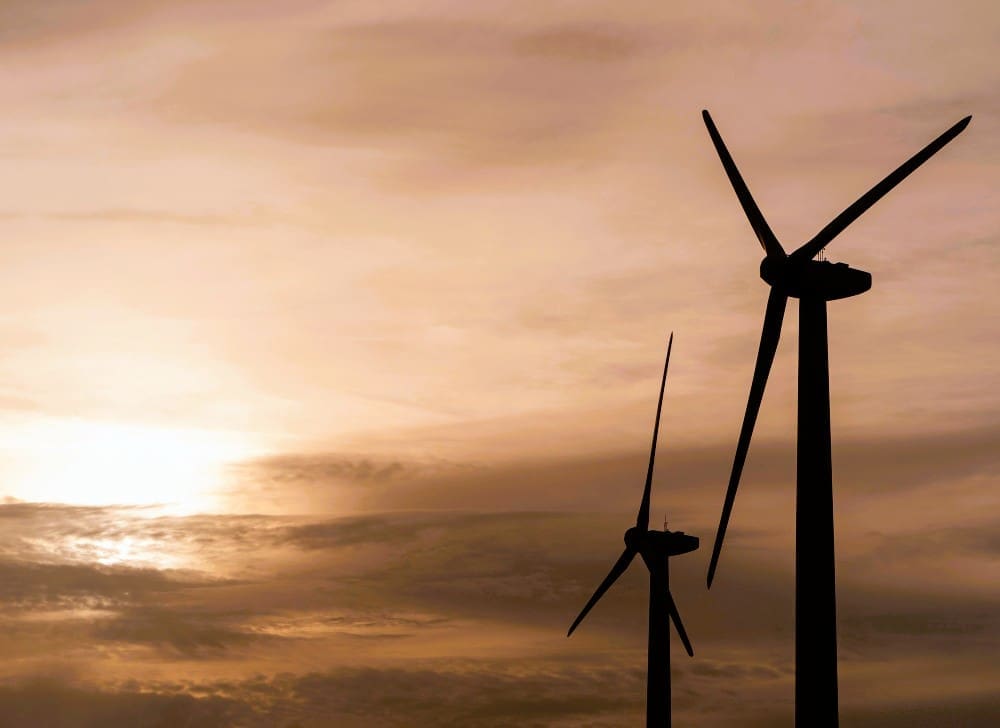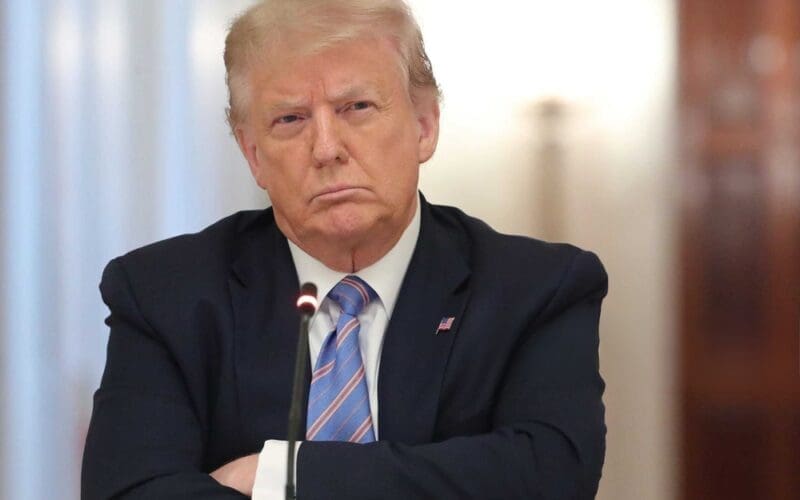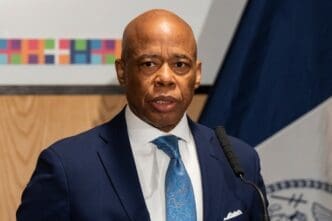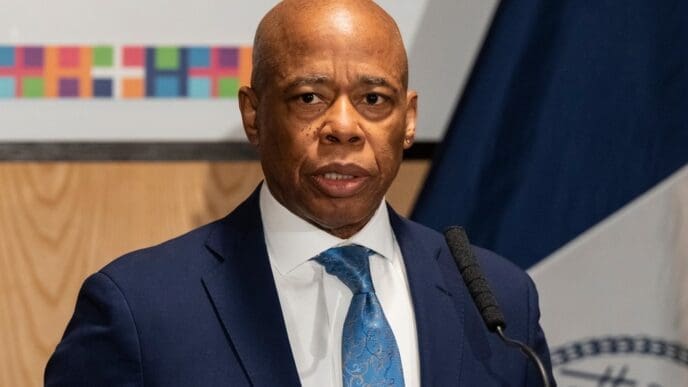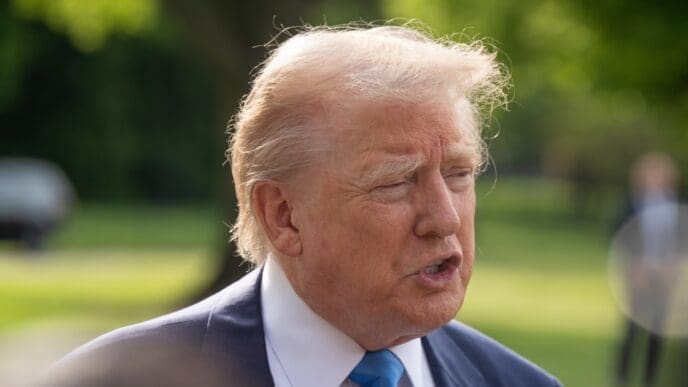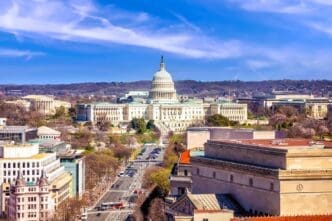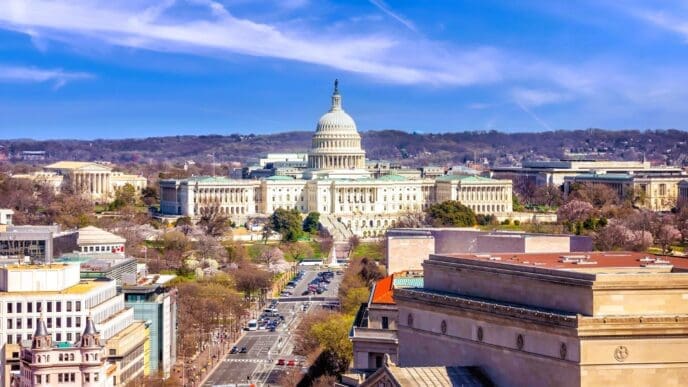The Trump administration has officially canceled a $4.9 billion federal loan guarantee for the Grain Belt Express, a massive transmission line designed to carry wind and solar power from the Midwest to the eastern United States. In a major policy reversal announced Wednesday, the U.S. Department of Energy (DOE) declared the project was not a critical federal interest and questioned its financial underpinnings, a move that jeopardizes the future of the $11 billion clean energy infrastructure project and aligns with President Donald Trump’s stated opposition to renewable energy initiatives.
The decision nullifies a conditional commitment made to the project’s developer, Chicago-based Invenergy, in November by the previous administration. The cancellation immediately drew both sharp criticism from clean energy advocates and praise from opponents concerned with property rights.
A Reversal of Policy
The Department of Energy justified its decision by framing it as a matter of fiscal responsibility and a correction of a rushed process. In its official statement, the agency said it terminated the commitment “to ensure more responsible stewardship of taxpayer resources,” suggesting the previous administration had improperly “rushed out the doors” billions of dollars in such commitments after the election.
Beyond the procedural justification, the DOE also stated that it is “not critical for the federal government to have a role” in the initial phase of the project. This stance reflects a broader administration policy that has consistently favored fossil fuels over renewables, with President Trump frequently describing wind and solar power as “unreliable” sources of energy.
What is the Grain Belt Express?
The Grain Belt Express is one of the nation’s most ambitious renewable energy infrastructure projects. The plan involves constructing a high-voltage transmission line capable of delivering up to 5,000 megawatts of electricity—enough to power millions of homes—from the wind-swept plains of Kansas across Missouri and Illinois, ultimately connecting to the eastern U.S. power grid in Indiana.
Invenergy, the developer, has promoted the project as a major economic driver and a tool for energy efficiency. The company projected the creation of 4,000 jobs during construction and estimated it would save American consumers approximately $52 billion on their energy bills over 15 years by delivering lower-cost, clean electricity to regions with higher demand.
A Flashpoint of Political and Local Conflict
The cancellation has intensified a long-simmering debate, pitting national energy goals against local land-use concerns. The project has powerful supporters who see it as essential for modernizing the grid and powerful opponents who view it as an infringement on individual rights.
Proponents Decry ‘Backward Move’
Supporters of the project reacted with dismay, calling the decision a significant setback for U.S. energy independence and climate goals. Bob Keefe, the executive director of the nonpartisan renewable energy group E2, labeled the cancellation a “more backward move” at a time of soaring electricity demand and rising consumer costs.
Keefe described the Grain Belt Express as “one of the country’s most important energy projects.” He argued that the decision was politically motivated, suggesting President Trump canceled the loan guarantee simply “because it will bring cleaner energy to more people.”
Critics Cheer Protection of Property Rights
Conversely, the project has faced fierce opposition, particularly in Missouri, where prominent Republicans have been vocal critics. U.S. Senator Josh Hawley and state Attorney General Andrew Bailey have championed the cause of landowners along the proposed route, framing the project as a threat to farmland and private property rights.
The core of their objection lies in the developer’s potential use of eminent domain-style legal actions to compel unwilling landowners to sell their property for the transmission line’s right-of-way. Senator Hawley, who called the project an “elitist land grab,” stated he had secured a pledge from U.S. Energy Secretary Chris Wright to cancel the loan guarantee during a conversation that also included President Trump. Attorney General Bailey has gone further, calling the project a “scam” and a “boondoggle.”
An Uncertain Future
The withdrawal of the massive federal loan guarantee casts a significant shadow over the future of the Grain Belt Express, which was slated to begin construction next year. While the full impact remains unclear, the loss of federal backing presents a formidable financial and logistical hurdle for Invenergy. The decision underscores the deep ideological divide in American energy policy, highlighting the conflict between transitioning to a green economy and the administration’s focus on traditional energy sources and local land rights.


